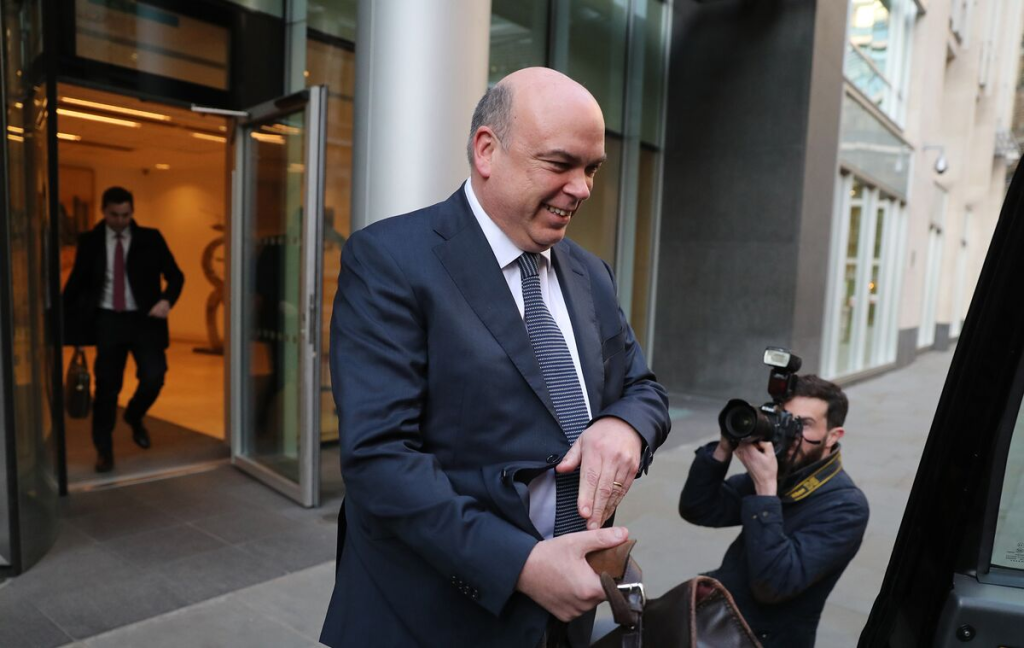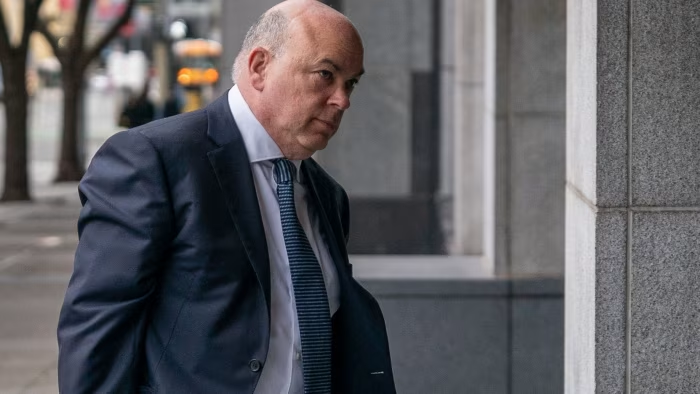Former Autonomy chief executive Mike Lynch was acquitted of criminal charges on Thursday, concluding a 13-year legal battle with Hewlett-Packard (HP). The case, which became one of Silicon Valley’s most prominent fraud trials, centered on allegations that Lynch falsely inflated revenues at the UK startup before its $11 billion sale to HP in 2011.
Following the verdict, Lynch expressed his relief and gratitude. “I am elated with today’s verdict and grateful to the jury for their attention to the facts over the last ten weeks,” he said. “My deepest thanks go to my legal team for their tireless work on my behalf.
I am looking forward to returning to the UK and getting back to what I love most: my family and innovating in my field.” The 12-week trial ended with Lynch being cleared of 15 counts of fraud and conspiracy related to the 2011 acquisition.
This outcome is significant, especially considering that in the US, only 0.4% of federal criminal cases led to trial and acquittal in fiscal year 2022, according to the Pew Research Center. Additionally, only 12% of wire fraud prosecutions resulted in acquittal.
Lynch’s legal counsel, Christopher Morvillo, and Brian Heberlig, celebrated the verdict, stating, “We are thrilled with the jury’s verdict, which reflects a resounding rejection of the government’s profound overreach in this case. The evidence presented at trial demonstrated conclusively that Mike Lynch is innocent.
This verdict closes the book on a relentless 13-year effort to pin HP’s well-documented ineptitude on Dr Lynch. Thankfully, the truth has finally prevailed.”
Lynch, 58, was extradited to the US and placed under house arrest with 24-hour surveillance ahead of the trial. He consistently maintained his innocence, arguing that HP scapegoated him after the company mismanaged Autonomy’s software assets following the acquisition.

Lynch made £500 million from the sale of Autonomy to HP. However, HP wrote down its investment by $8.8 billion just a year later, attributing $5 billion of that loss to alleged practices by Autonomy’s former management that inflated the company’s value and misled potential buyers.
Prosecutors accused Lynch and Stephen Chamberlain, Autonomy’s former vice president of finance, of illegally inflating revenues before the acquisition and concealing high-margin software revenue within unprofitable hardware sales.
During the trial, Lynch successfully argued that he was not involved in accounting and contract matters, focusing instead on technical and marketing issues.
Despite efforts to have the case heard in the UK, leading to his extradition, Lynch was ultimately exonerated by the US jury on all counts, along with Chamberlain, who was also on trial.
The US attorney’s office in San Francisco acknowledged the verdict, stating, “We acknowledge and respect the verdict. We would like to thank the jury for its attentiveness to the evidence the government presented in this case.”
The sale of Autonomy to HP was initially seen as a validation of the UK’s burgeoning tech scene, with the company’s platform being touted as a solution to revitalize HP’s struggling hardware business. Lynch co-founded Autonomy in 1996 from a specialist software research group called Cambridge Neurodynamics.
Awarded an OBE for services to enterprise in 2006, Lynch became a UK government adviser, serving on the boards of the BBC and the British Library. He also founded the venture capital firm Invoke Capital and invested in the cyber security company Darktrace.
As the legal saga comes to an end, Lynch looks forward to resuming his life in the UK. The acquittal allows him to return to his family and continue his work in technology and innovation. The verdict is a reminder of the complexities involved in high-stakes corporate acquisitions and the legal challenges that can arise from them.
The case against Lynch and Chamberlain was one of the most closely watched in recent years, given the scale of the acquisition and the subsequent fallout. HP’s decision to write down its investment significantly impacted its reputation and led to questions about its due diligence during the acquisition process.
In the wake of the verdict, Lynch’s supporters and legal team are hopeful that this marks the end of a long and arduous chapter. They emphasize that the jury’s decision underscores the importance of thoroughly examining evidence and not rushing to judgment based on corporate missteps.
For Lynch, the focus now shifts back to innovation and contributing to the tech industry. His work with Invoke Capital and other ventures continues to highlight his commitment to advancing technology and supporting emerging companies.
The acquittal serves as a significant moment in the ongoing narrative of Silicon Valley’s corporate and legal landscape. It also reinforces the notion that even in high-profile cases, justice can prevail through careful deliberation and a commitment to uncovering the truth.
As Lynch returns to the UK, the tech community will be watching closely to see his next steps and how he continues to shape the industry. The lessons learned from this case will undoubtedly influence future corporate governance and acquisition strategies in the tech sector.
Read more news:
